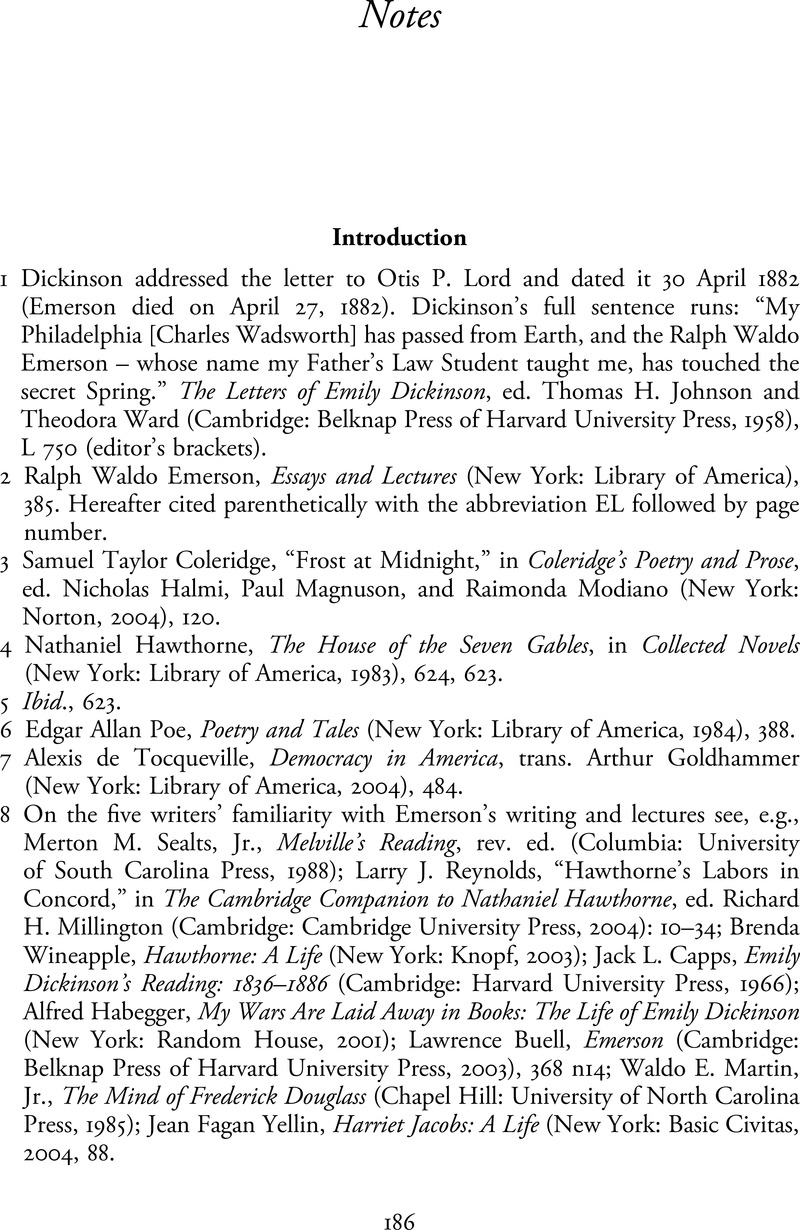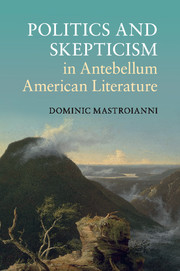Book contents
- Frontmatter
- Contents
- Acknowledgments
- Introduction: secret springs
- Chapter 1 Moods and the secret cause of revolution in Emerson
- Chapter 2 Revolutionary time and democracy’s causes in Melville’s Pierre
- Chapter 3 Hawthorne and the temperatures of secrecy
- Chapter 4 Causes of falling, Civil War, and the poetics of survival in Dickinson’s Fascicle 24
- Conclusion: antislavery writing, skepticism, and scorching words
- Notes
- Index
- References
Notes
Published online by Cambridge University Press: 05 November 2014
- Frontmatter
- Contents
- Acknowledgments
- Introduction: secret springs
- Chapter 1 Moods and the secret cause of revolution in Emerson
- Chapter 2 Revolutionary time and democracy’s causes in Melville’s Pierre
- Chapter 3 Hawthorne and the temperatures of secrecy
- Chapter 4 Causes of falling, Civil War, and the poetics of survival in Dickinson’s Fascicle 24
- Conclusion: antislavery writing, skepticism, and scorching words
- Notes
- Index
- References
Summary

- Type
- Chapter
- Information
- Politics and Skepticism in Antebellum American Literature , pp. 186 - 208Publisher: Cambridge University PressPrint publication year: 2014



